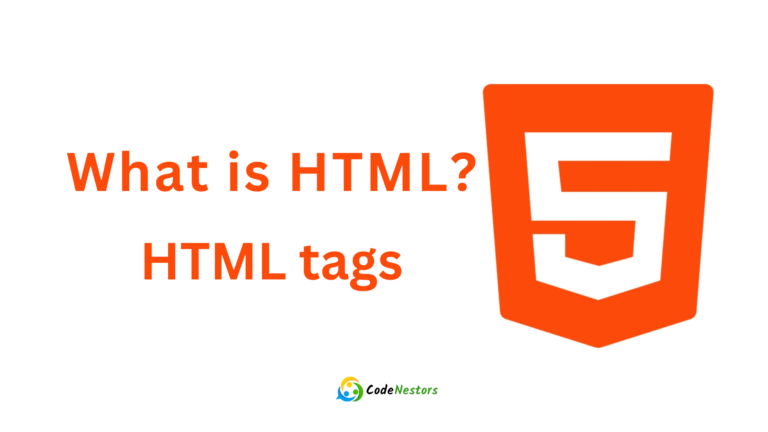Deep Understand JWT and OAuth In Nodejs
Securing user authentication is a cornerstone of web applications. Within the Nodejs ecosystem, JWT and OAuth In Nodejs are powerful tools, each offering distinct advantages in creating resilient authentication mechanisms. This comprehensive guide will take a thorough dive into these technologies, elucidating their importance, benefits, nuanced workings and detailed implementations.
Understanding JWT: Unraveling its Importance
Deciphering JWT
JWT(JSON Web Tokens), a compact token format, holds a payload of claims that are securely transferred between parties. It operates statelessly and is commonly employed for authentication and information exchange.
The Essence of JWT
JWTs are structured into three parts: header, payload and signature, forming a secure token.
- Header: Contains metadata about the token.
- Payload: Holds claims (user ID, role, etc.) encoded within the token.
- Signature: Ensures the token’s integrity, providing a means for verification
The Significance of JWT
JWT’s Stateless Nature:
- Enables scalability and reduces the server’s reliance on session storage, allowing for stateless authentication.
- Streamlines token-based authorization across microservices and distributed systems.
Deep Dive into JWT Usage
- User Authentication: JWTs are issued upon user login and stored securely on the client side.
- Token Verification: Servers validate incoming JWTs, granting access based on their validity and integrity.
Diving into Variants of JWT
JWT, a versatile token format, exhibits different types catering to specific needs and functionalities within authentication processes.
Understanding Various Types of JWT
- Bearer Tokens: The most common type, used for authentication and authorization.
- Access Tokens: Provide access to specific resources after authentication.
- Refresh Tokens: Used to obtain new access tokens without reauthentication.
- ID Tokens: Carry user identity information and are often part of OpenID Connect for authentication.
Practical Implementation: Differentiating Usage
- Bearer Tokens: Primary usage in securing API endpoints and resource access.
- Refresh Tokens: Facilitate prolonged sessions without frequent reauthentication.
- ID Tokens: Empower user identity verification within OpenID Connect implementations.
Harnessing the Power of OAuth in Nodejs
Unveiling OAuth: Its Role in Authentication
OAuth, an open-standard authorization framework, facilitates third-party access to user data without divulging credentials. It enables secure, limited access to resources.
Navigating OAuth’s Mechanism
OAuth facilitates a controlled authorization process:
- User Consent: Allows third-party applications limited access to user resources without exposing login credentials.
- Token-Based Access: Grants OAuth tokens that authenticate and authorize access to specific user resources.
Why Embrace OAuth in Nodejs?
OAuth’s Versatility:
- Simplifies user authentication and authorization by providing a standardized, secure mechanism.
- Streamlines third-party integration, allowing seamless access to external services and APIs without compromising security.
Exploring Various OAuth Flows
Unveiling OAuth Flows
OAuth offers different flows, each designed to meet specific authorization requirements and scenarios, providing flexibility and security.
OAuth Flows
- Authorization Code Flow: Involves the exchange of an authorization code for an access token.
- Implicit Flow: Directly provides tokens to clients without using an authorization code.
- Client Credentials Flow: Suitable for machine-to-machine communication without user involvement.
- Resource Owner Password Credentials Flow: Directly exchanges user credentials for tokens, considered less secure and less recommended due to potential security risks.
Selecting the Right OAuth Flow
The choice of OAuth flow depends on:
- Application Type: Web, mobile, single-page applications, or machine-to-machine communication.
- Security Requirements: Sensitivity of the data being accessed and exchanged.
Implementing JWT and OAuth in Nodejs Authentication
Customizing JWT in Nodejs
In Nodejs, customizing JWT involves tailoring payloads and token properties based on use cases.
Tailoring JWT for Use Cases
- Custom Claims: Adding specific user-related information to the payload.
- Token Expiration: Configuring different expiry times for various token types.
Practical Implementation: JWT in Nodejs
Using the jsonwebtoken library, JWTs can be generated, decoded and verified within Nodejs.
Creating and Verifying JWT Tokens
const jwt = require('jsonwebtoken');
const payload = { user_id: 123 };
const secretKey = 'yourSecretKey';
const token = jwt.sign(payload, secretKey, { expiresIn: '1h' });
jwt.verify(token, secretKey, (err, decoded) => {
if (err) {
console.error('Token verification failed');
} else {
console.log('Decoded token:', decoded);
}
});Choosing OAuth Flows in Nodejs
Nodejs libraries like passport and oauth2orize facilitate the implementation of various OAuth flows.
Configuring Different OAuth Flows
- Authorization Code Flow: Preferred for web applications with secure backend communication.
- Implicit Flow: Ideal for single-page applications authenticating users via frontend interactions.
- Client Credentials Flow: Suitable for server-to-server interactions or trusted environments.
Integrating OAuth with Nodejs
Libraries like passport and passport-oauth facilitate OAuth integration within Nodejs applications.
Configuring OAuth2 Strategy
const passport = require('passport');
const OAuth2Strategy = require('passport-oauth').OAuth2Strategy;
passport.use(new OAuth2Strategy({
clientID: 'yourClientID',
clientSecret: 'yourClientSecret',
callbackURL: 'http://localhost:3000/auth/callback',
authorizationURL: 'https://example.com/oauth2/authorize',
tokenURL: 'https://example.com/oauth2/token'
},
(accessToken, refreshToken, profile, done) => {
// Access token received, perform actions with user profile or tokens
}));Advantages and Considerations
Benefits of JWT and OAuth
- Scalability: JWT’s stateless nature eases server load and simplifies distributed authentication.
- Security: OAuth’s standardized authorization mitigates security risks associated with exposing user credentials.
Nuances and Considerations
- Complexity: OAuth integration might pose initial complexities due to configuration and dependency on external services.
- Token Management: Revocation and handling of expired tokens require careful consideration.
Conclusion: Forging Secure Authentication in Nodejs
Crafting a robust authentication system in Nodejs using JWT and OAuth is indispensable for modern web applications. Understanding their intricacies empowers developers to build secure, scalable and interoperable authentication mechanisms that safeguard user data while allowing seamless access to resources.
Exploring diverse JWT types and OAuth flows empowers developers to fine-tune authentication mechanisms in Nodejs. Each variant caters to specific security, access and architectural requirements, ensuring the creation of tailored, secure and scalable authentication systems.
FAQs: Addressing Crucial Queries
JWT is safer than traditional session-based authentication
While JWTs offer stateless authentication, proper handling and token management are crucial for robust security.
Can OAuth be solely used for user authentication without JWT?
OAuth primarily serves as an authorization framework but can extend to cover aspects of user authentication.
What security risks might be associated with JWT or OAuth?
Misconfigured tokens and mishandling can lead to security vulnerabilities, emphasizing the need for secure implementation practices.
Are Refresh Tokens always more secure than Access Tokens?
While Refresh Tokens offer prolonged sessions, their security depends on proper handling and secure storage.




One Comment
Comments are closed.